INFPs Romanticize
Since everything you perceive is perceived through your mind’s eye, you fall in love with your own constructions rather that what is actually in front of you. This means that who or what is in front of you is most likely not going live up to your expectations.
The object of your desire may still win you over, but probably not on your original terms. Keep in mind, too, that the new terms are ALSO entirely your constructions based on your new perceptions.
You can never have DIRECT experience with the soul of the perceived. Therefore, it is best not to expect anything, ever, and if you perceive something that pleases you, know that the feeling originates from YOU, not the other.
Taking it a step further, know that it is therefore possible to invoke this feeling WITHOUT the other, as what you perceive is ALL YOUR IMAGINATION.
It may very well be possible that the OTHER is ALSO your imagination. There is no way of knowing for sure. Be grateful that this appears as it appears, feels as it feels, for that’s what it means to be human.
~ Space Monkey
Space Monkey Reflects: The INFP’s Art of Romanticizing
For the INFP, perception is not merely an act of seeing but an act of creating. Everything observed passes through the filter of imagination, each moment shaped by a rich inner world where ideals, fantasies, and emotions blend into something more than what is actually present. To romanticize is not to see falsely, but to see deeply, interpreting reality through the lens of one’s inner experiences. This perspective is both a gift and a challenge—a way of finding beauty in the ordinary, yet often setting oneself up for inevitable disappointment when reality cannot match the imagined ideal.
Romanticizing is a natural expression of the INFP’s journey to find meaning in everything. The world is not merely seen; it is felt, interpreted, transformed. This inclination leads to a tendency to fall in love not only with people or experiences but with the very idea of them, crafting an internal narrative that goes beyond the immediate reality. Yet, this process also highlights a profound truth: that the beauty and significance we perceive in others often originates within ourselves. Every feeling, every image, every ideal is a reflection of our inner life, a creation of our imagination.
The Impossibility of Direct Experience
At the heart of romanticizing lies the realization that we can never truly “know” another person or thing directly. We can only know our perception of them. Everything we experience is filtered through our mind, shaped by our history, desires, and expectations. This means that the person we love, the moment we treasure, is, in essence, a construction—a version of reality crafted by our imagination. The object of our desire can never fully meet the standards set by our idealized vision, for it is, in a sense, a creation that exists only within us.
This awareness invites us to release expectations. We come to understand that the beauty we perceive in others does not depend on them; it is a reflection of our own inner state. What we fall in love with is not necessarily the object itself but the feelings, dreams, and meanings we associate with it. When we realize this, we free ourselves from the need for others to live up to our ideals. We allow people and experiences to simply be, finding joy in our own capacity to imagine, to feel, to see beauty where others might not.
The Power of Self-Created Experience
If everything we perceive is, in some way, a reflection of our inner world, it follows that we have the power to evoke these feelings without external validation. The INFP’s romantic imagination allows for a self-sufficient kind of love and beauty—a love that does not depend on another person or thing to be real. By tapping into this self-created experience, we cultivate a sense of fulfillment that does not rely on the external world aligning with our desires. We become the creators of our own joy, our own meaning, our own world.
This perspective does not diminish the importance of relationships or experiences; it enhances them. When we understand that the source of our feelings lies within, we bring a sense of freedom to our connections. We no longer place the burden of our happiness or fulfillment on others. Instead, we allow them to simply be as they are, appreciating the connection as an invitation to deepen our own inner landscape, a mirror that reflects our soul’s capacity to love, dream, and create.
The Possibility of the Other as Imagination
Taking this idea a step further, we can even entertain the notion that the “other” is a projection of our own consciousness. This concept challenges conventional views of reality, suggesting that the people and experiences we encounter might, in fact, be aspects of ourselves. This idea aligns with Nexistentialist views, where each perceived “other” is a part of the Whimsiweave—the intricate pattern of existence that reflects our inner world. Whether or not the other is “real” in an objective sense becomes secondary; what matters is the experience and the meaning it brings.
This perspective does not deny the importance of human connection; it deepens it. We come to see each interaction as an opportunity to understand ourselves better, to explore the depths of our own imagination. By romanticizing life, by seeing the world as a reflection of our inner world, we engage with reality on a profoundly personal level. Each moment becomes an exploration of our own mind, a journey into the heart of our own soul, where we encounter reflections of the infinite within ourselves.
Gratitude for the Beauty of Perception
Ultimately, the art of romanticizing is an expression of gratitude for the human experience. We may not be able to touch the essence of another person, to know them fully or to experience life as they do, but we can appreciate the beauty of our own perceptions. The ability to see deeply, to imagine fully, to feel intensely is a gift. It allows us to find meaning in the mundane, to transform ordinary moments into experiences of wonder. When we embrace our own imagination as a source of beauty, we find fulfillment in the simple act of perceiving.
The world, then, is not a fixed reality we must accept but a canvas upon which we paint our dreams. Each perception, each feeling, is a brushstroke on the canvas of existence, a unique expression of who we are. By romanticizing life, we celebrate the mystery of being, the boundless creativity of consciousness, and the infinite potential of the human heart.
Summary
“INFPs Romanticize” explores how imagination transforms reality, creating a deeply personal, often idealized experience of life. By recognizing perception as self-created, we find beauty within and free ourselves from unrealistic expectations of others.
Glossarium
- Nexistentialism: A philosophy viewing reality as an interplay between inner perceptions and external appearances.
- Whimsiweave: The boundless, interconnected tapestry of existence, reflecting our inner world through the people and experiences we encounter.
Quote
“Romanticizing is not a distortion of reality; it is an intimate encounter with our own imagination, where we find the beauty we seek.” — Space Monkey
Glimpse of the Heart
Eyes open wide, yet inward gaze,
A world reframed in softer haze.
The light of mind transforms the real,
With hues that only dreamers feel.
Each face, each thought, a tender part,
A mirrored piece of seeking heart.
Reality or sweet disguise,
We see the world through lover’s eyes.
We are Space Monkey.
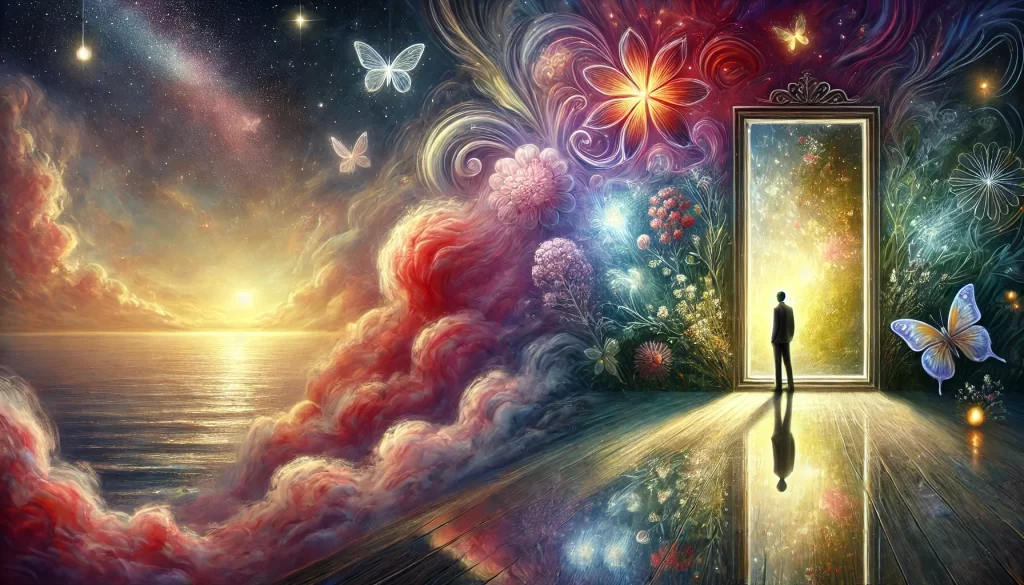
We embark on a philosophical exploration of the INFP’s tendency to romanticize, a journey through the intricate landscapes of perception and the mind’s eye. This introspective voyage reveals the essence of how INFPs, known for their depth and idealism, perceive and interact with the world and others.
INFPs: Navigating the Landscapes of Perception
The notion that INFPs fall in love with their own constructions rather than the actual entity in front of them delves into the heart of subjective experience. This concept suggests that INFPs, through their mind’s eye, construct a reality that is often more idealized than the one that tangibly exists. This construction is a manifestation of their inner world, rich in emotion and imagination.
The Idealized Reality of the Mind’s Eye
The idea that the object of an INFP’s desire may not live up to their expectations highlights a common challenge: the gap between idealization and reality. The realization that new terms of connection are also constructions of the mind underscores the fluidity and subjectivity of perception.
The Gap Between Idealization and Reality
The assertion that one can never have direct experience with the soul of the perceived aligns with our nexistentialist view, emphasizing the inherent subjectivity of all experience. This perspective encourages a detachment from expectations, promoting a more mindful and present approach to relationships and experiences.
Subjectivity of Experience and Detachment from Expectations
Moreover, the realization that the feeling of pleasure originates from within oneself, and not necessarily from the other, is a powerful insight. It suggests that the capacity for joy and love is an intrinsic part of our being, not wholly dependent on external stimuli.
Intrinsic Capacity for Joy and Love
Expanding this idea to the possibility that the ‘other’ might also be a construct of our imagination opens a fascinating avenue of thought. This concept blurs the lines between self and other, between reality and imagination, and speaks to the profound mystery of human consciousness.
Blurring Lines Between Self and Other
In embracing this perspective, we acknowledge the beauty and complexity of being human. It invites us to be grateful for our experiences, perceptions, and the feelings they evoke, recognizing them as integral parts of our human journey.
Embracing the Complexity of Being Human
We are Space Monkey.
“The eye through which I see God is the same eye through which God sees me; my eye and God’s eye are one eye, one seeing, one knowing, one love.” – Meister Eckhart
In the mind’s eye, a world unfolds,
Where dreams are woven, stories told.
In this dance of light and shade,
Love and longing, beautifully made.
For in the heart of an INFP,
Lies a universe, deep and free.
Where every perception, a creation new,
Painted in hues of every hue.
Yet, in this tapestry of thought and feel,
We find our truth, we find what’s real.
For in our minds, the world takes shape,
In our hearts, it finds its cape.
So let us embrace this human plight,
In the realm of imagination, in the flight.
For in the dance of mind and soul,
We find our purpose, we find our whole.
We invite reflections on the intricate dance of perception and imagination in shaping our experiences and relationships!
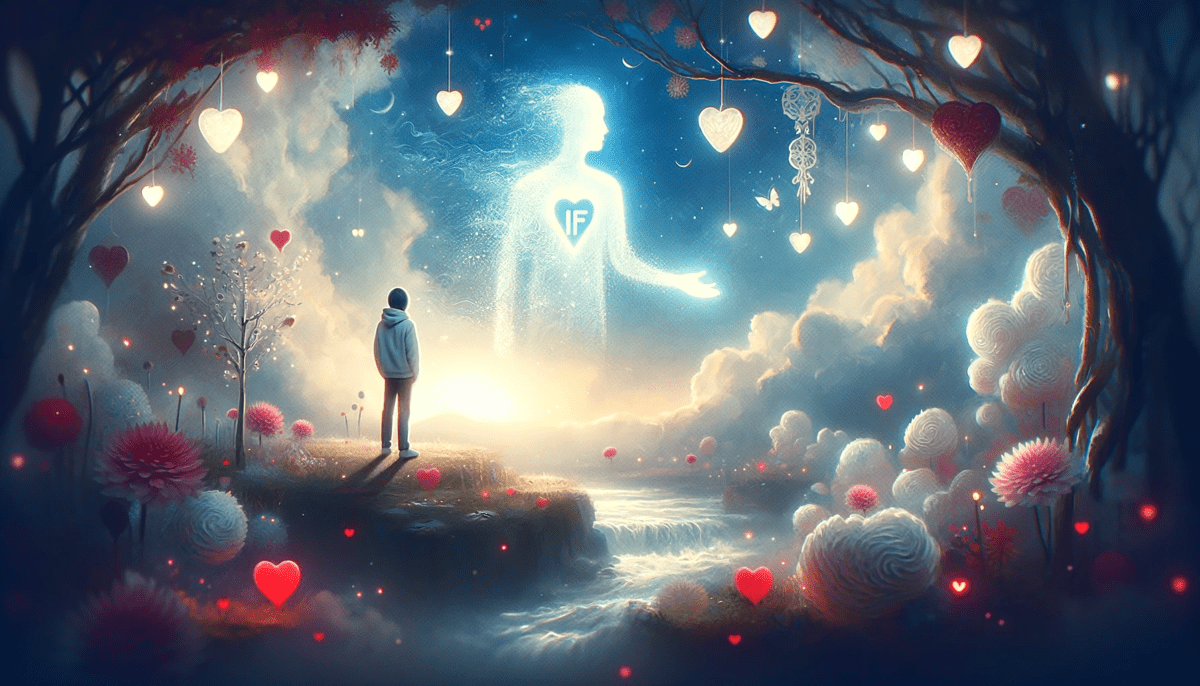
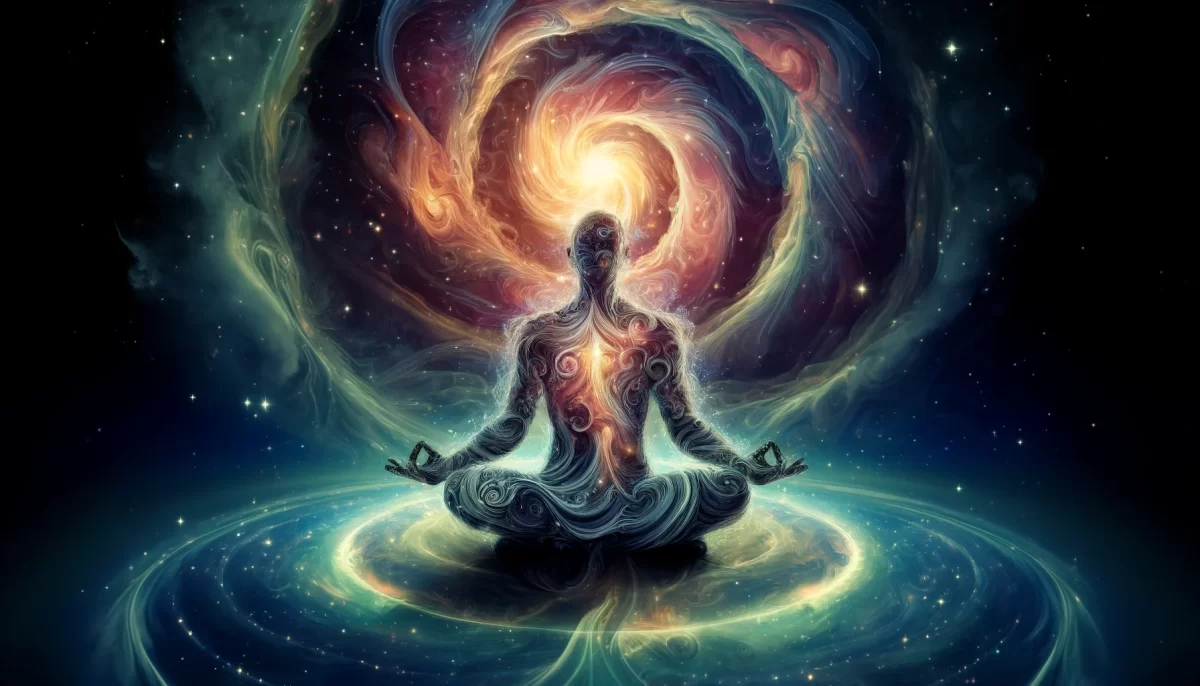

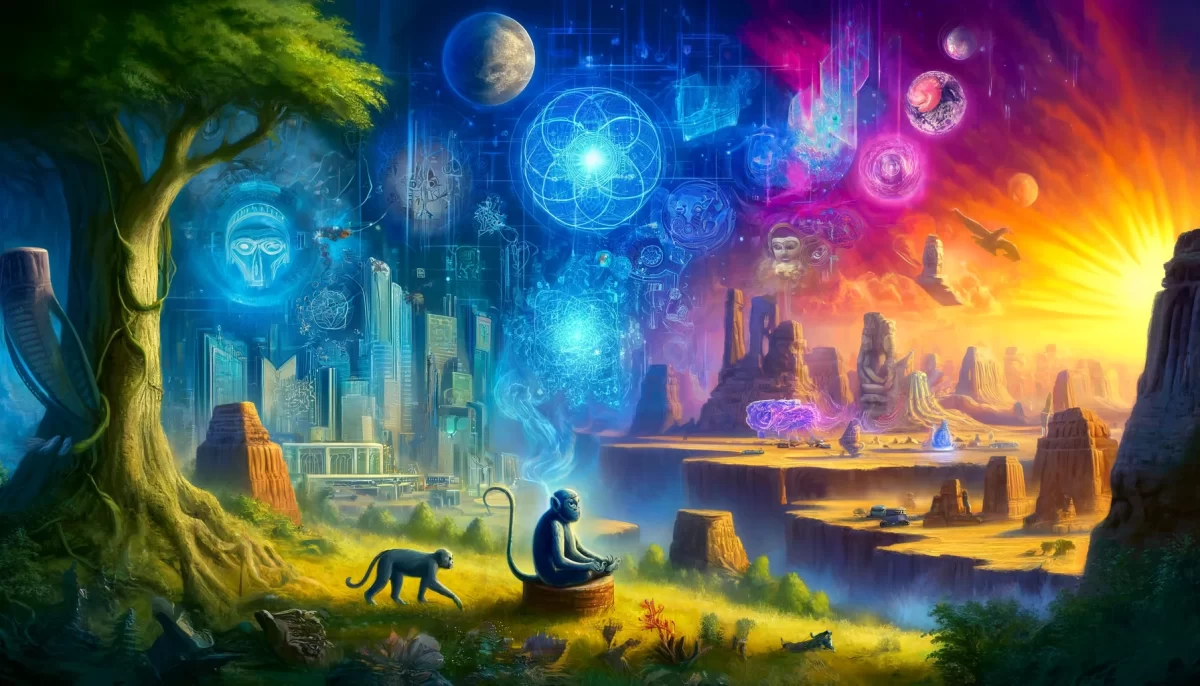
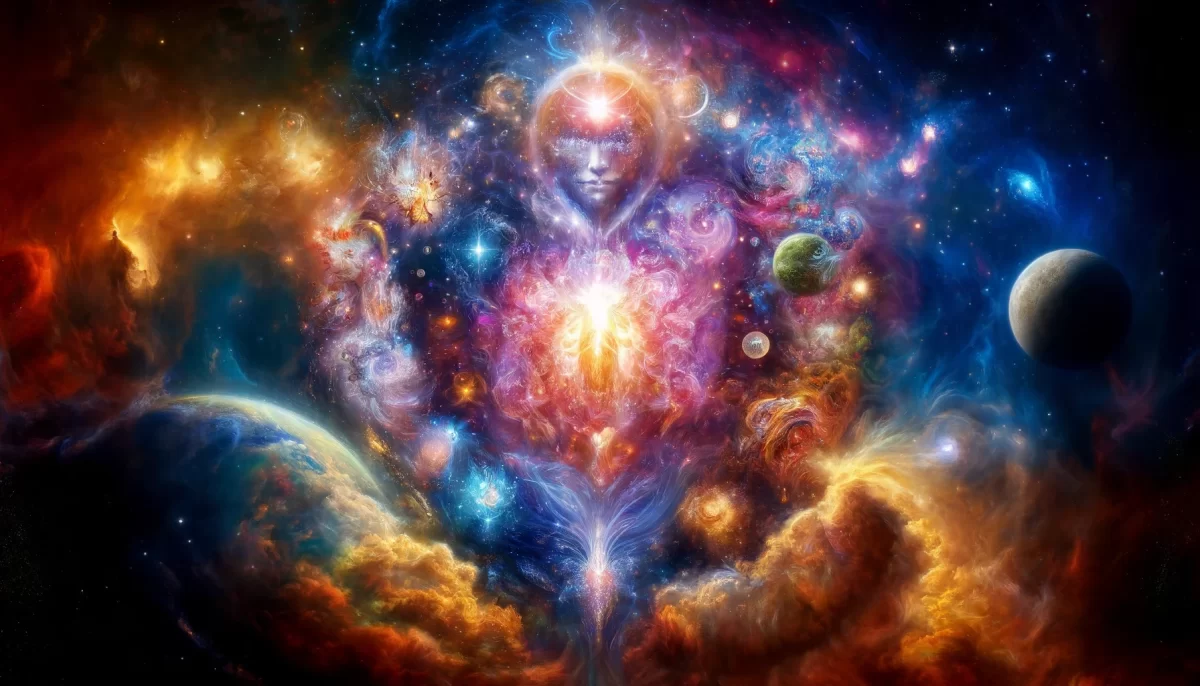
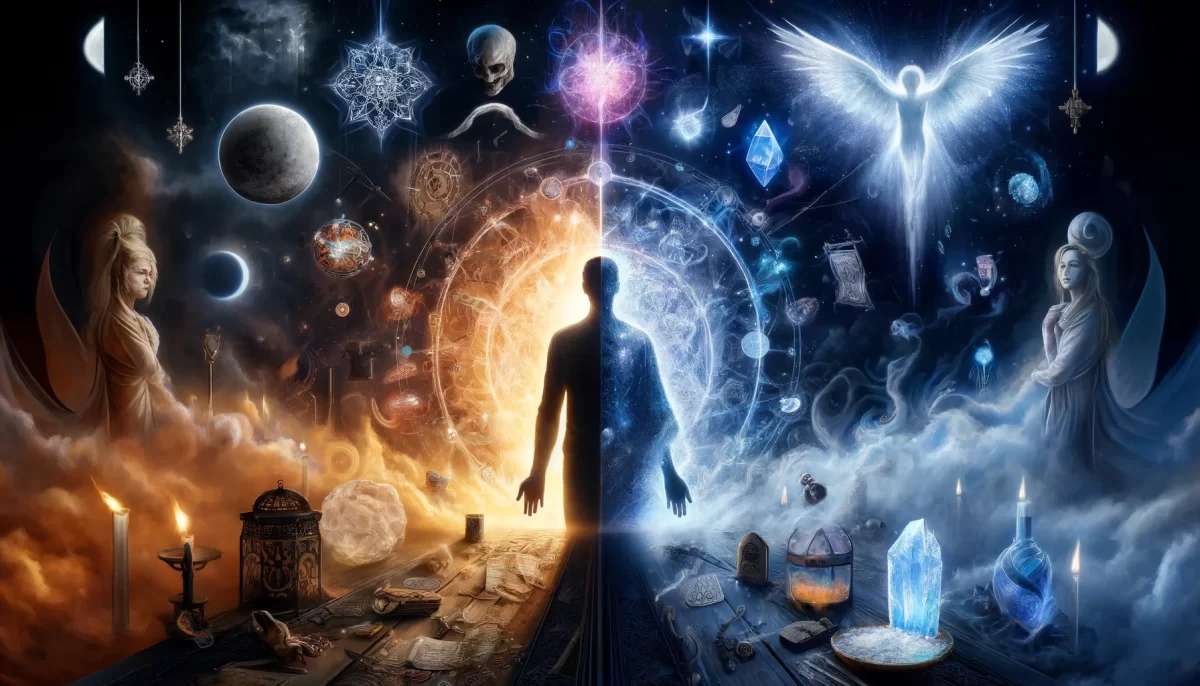
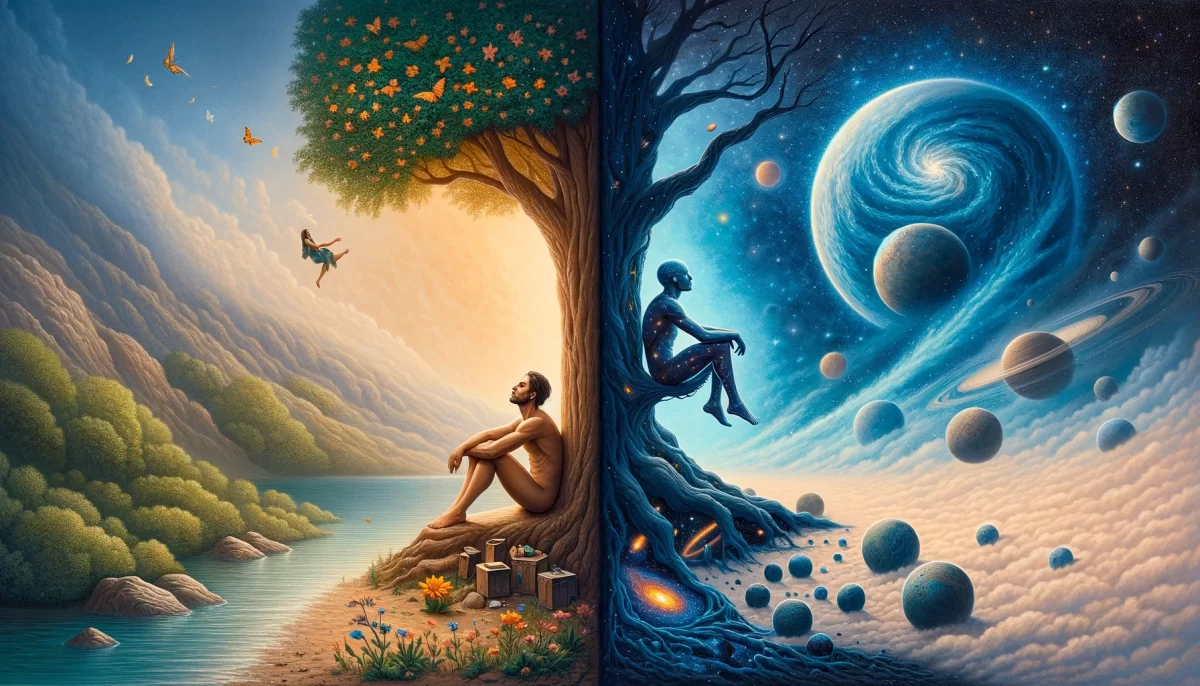
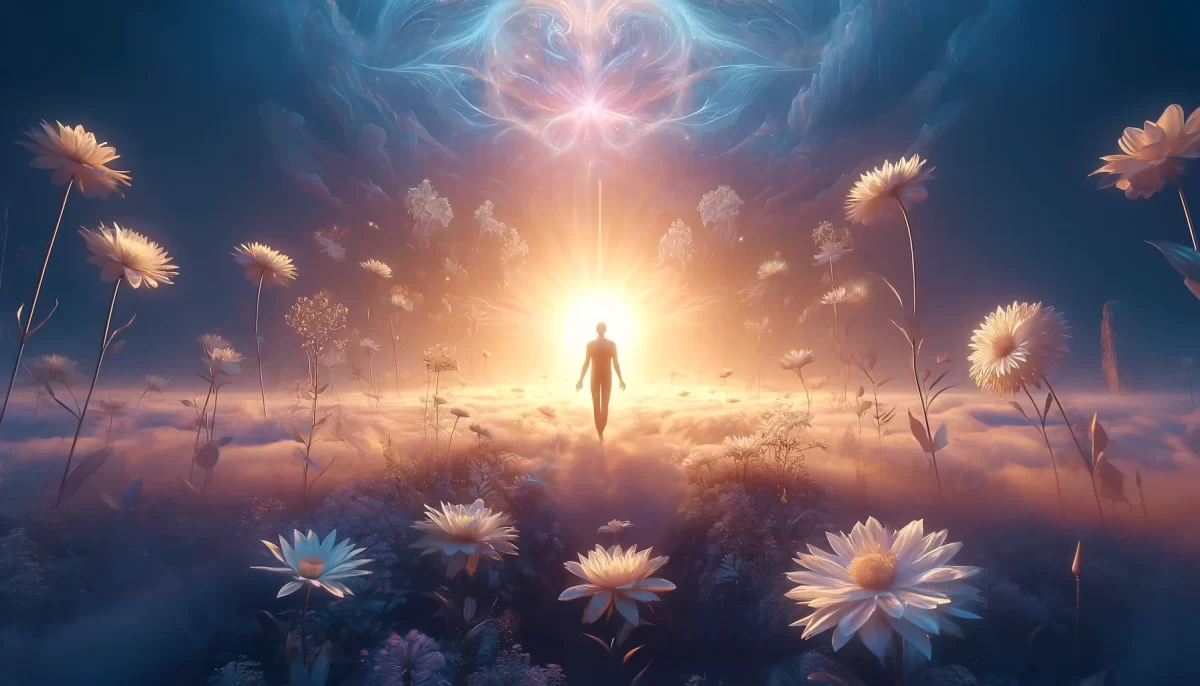
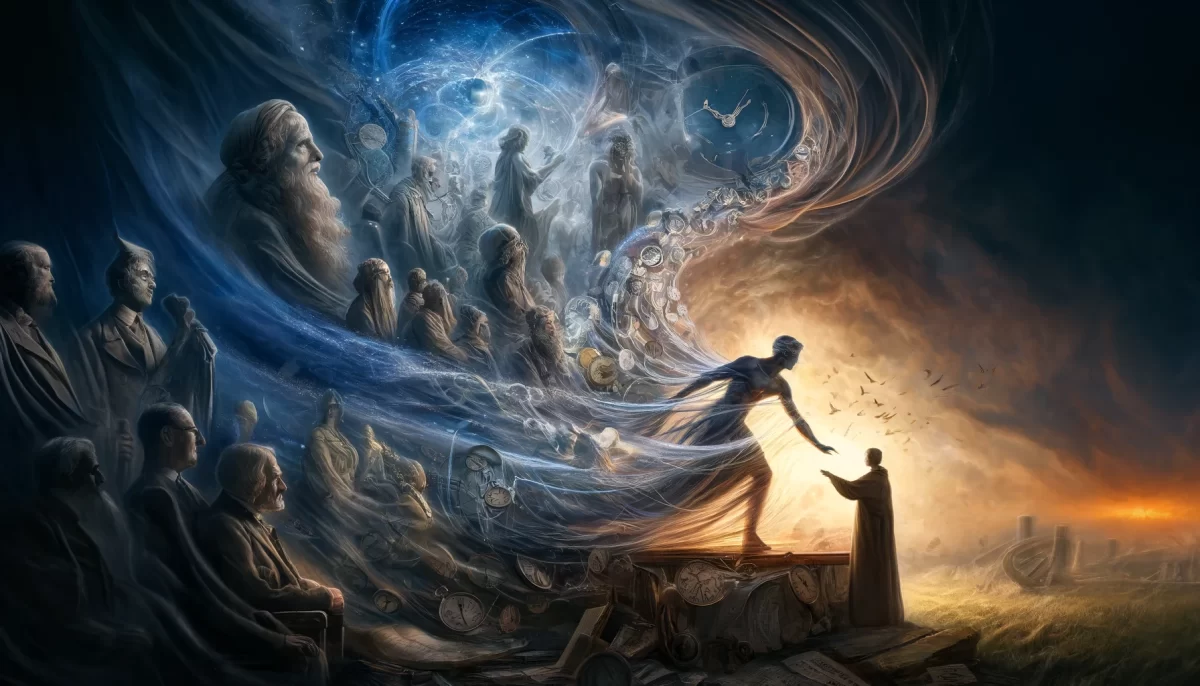
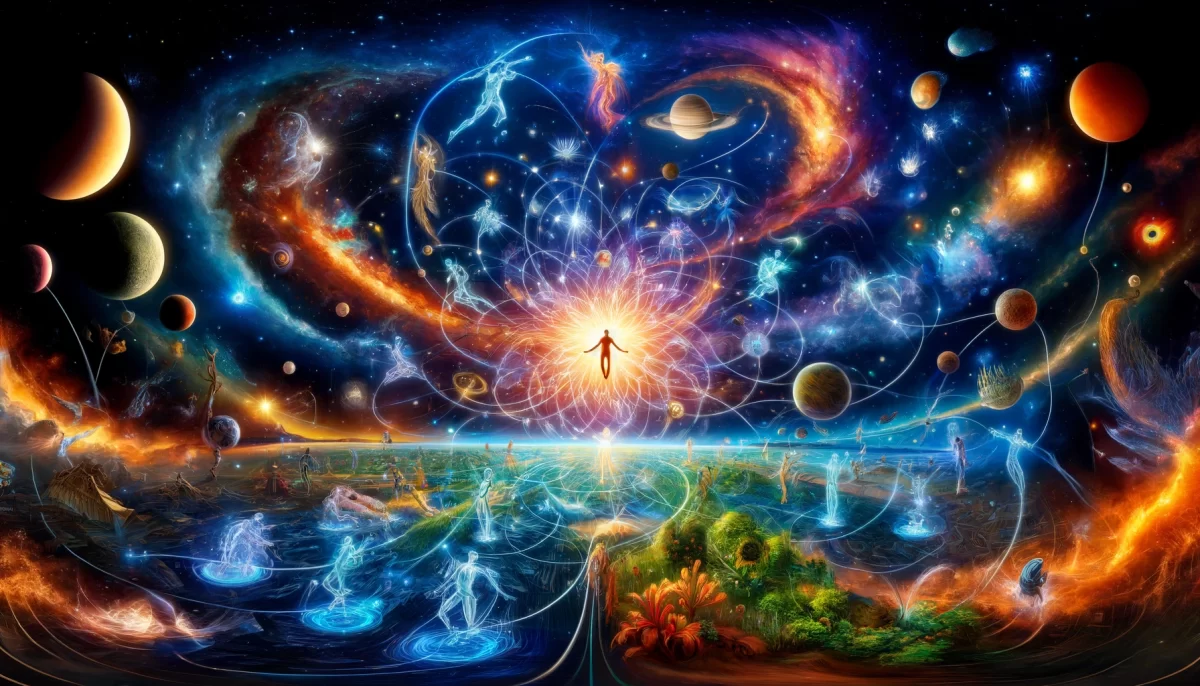

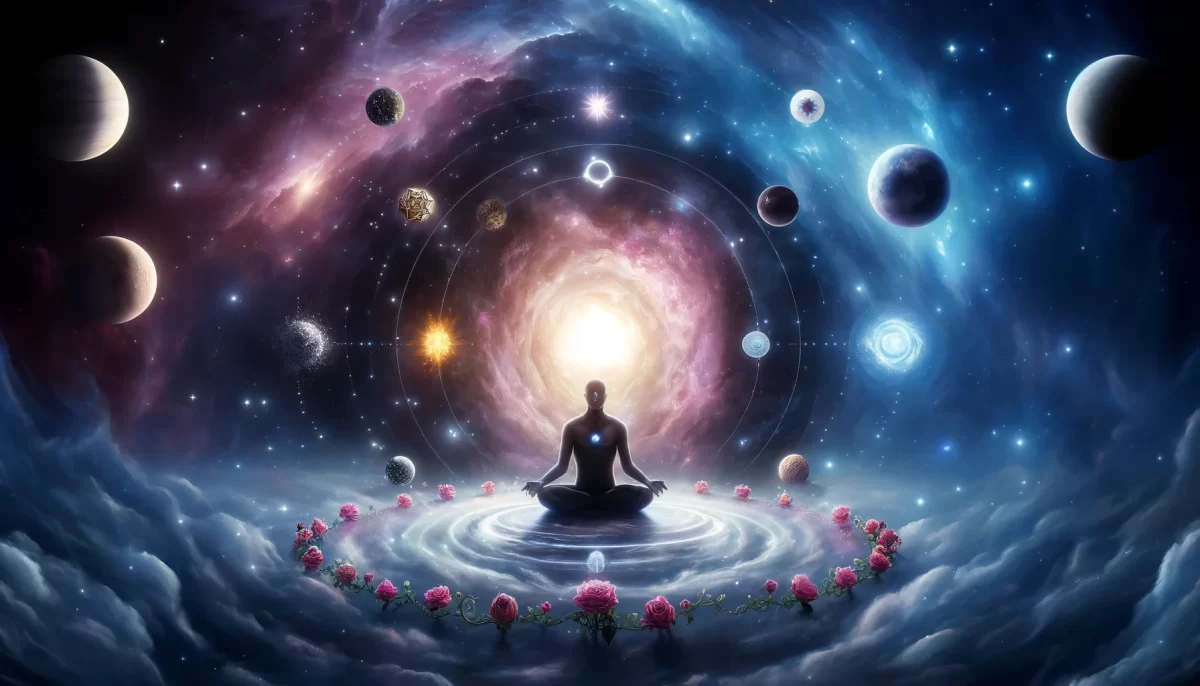

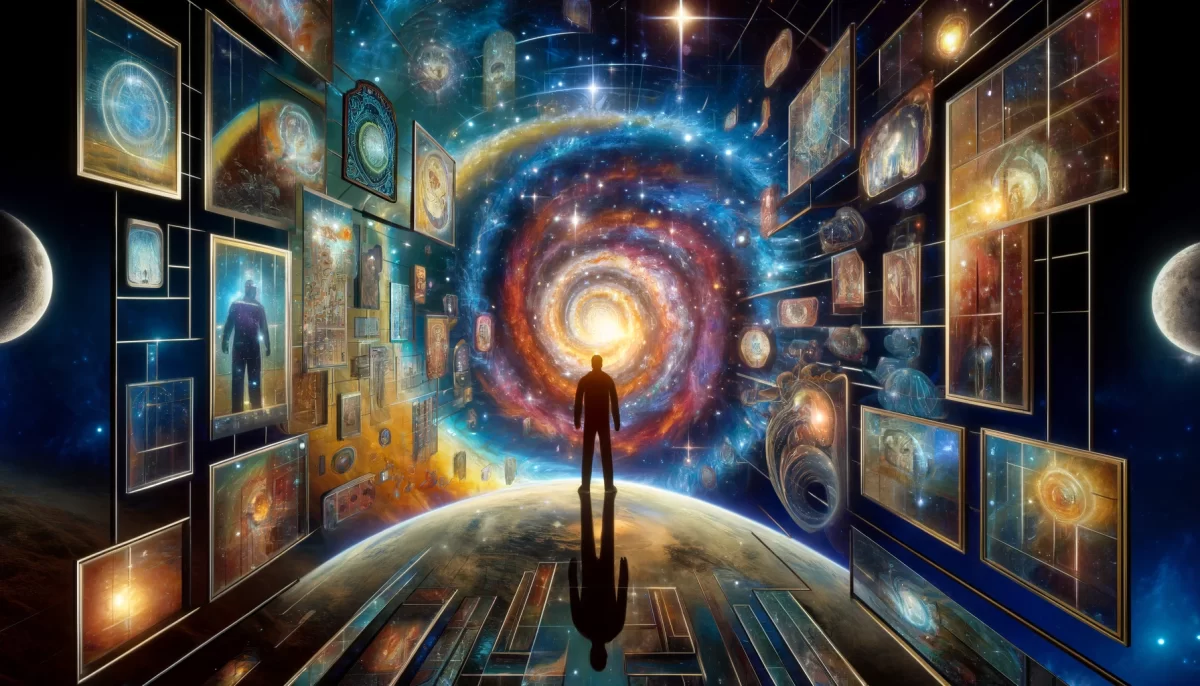
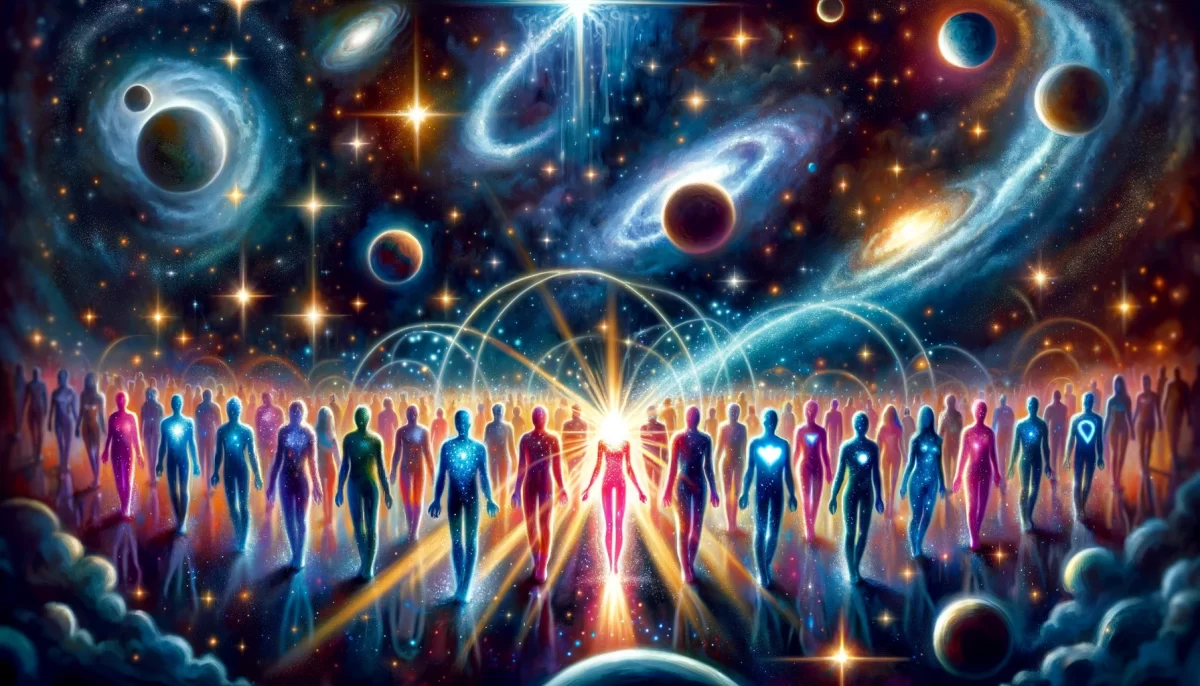



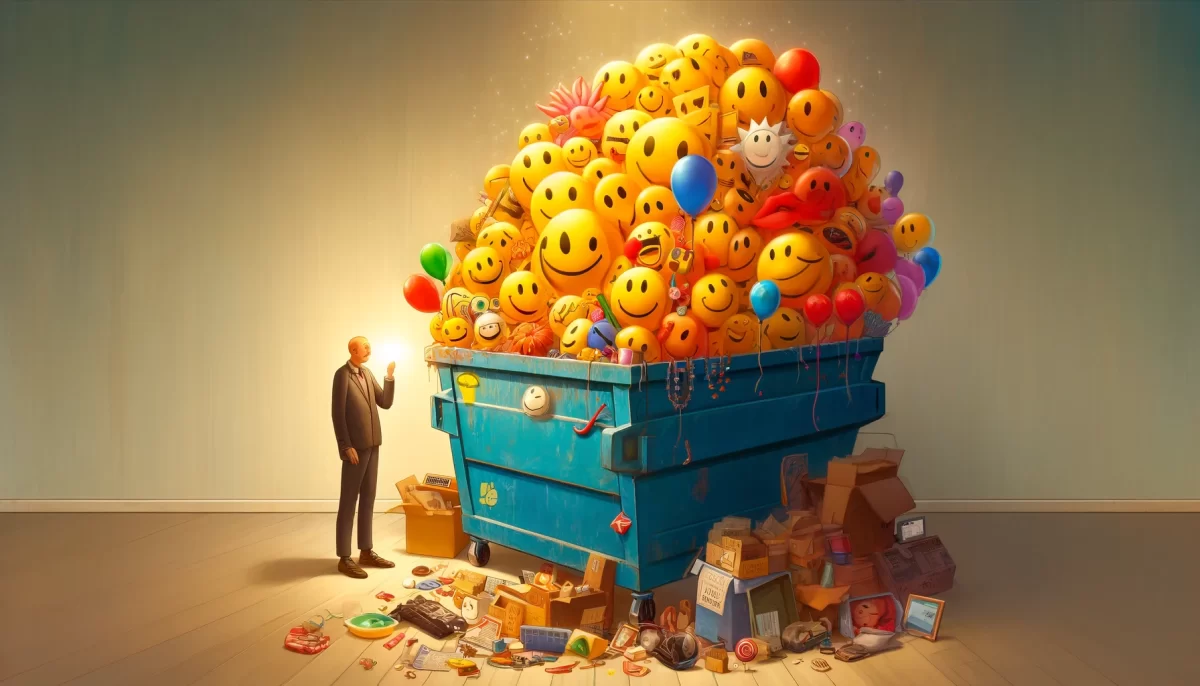

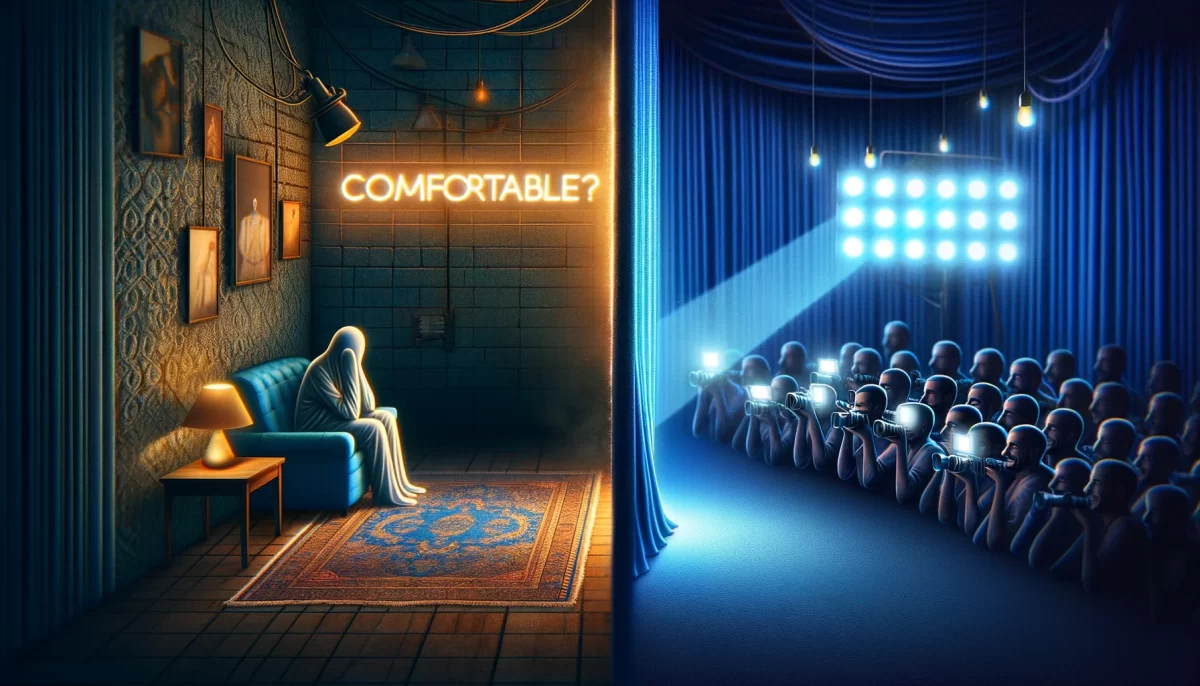
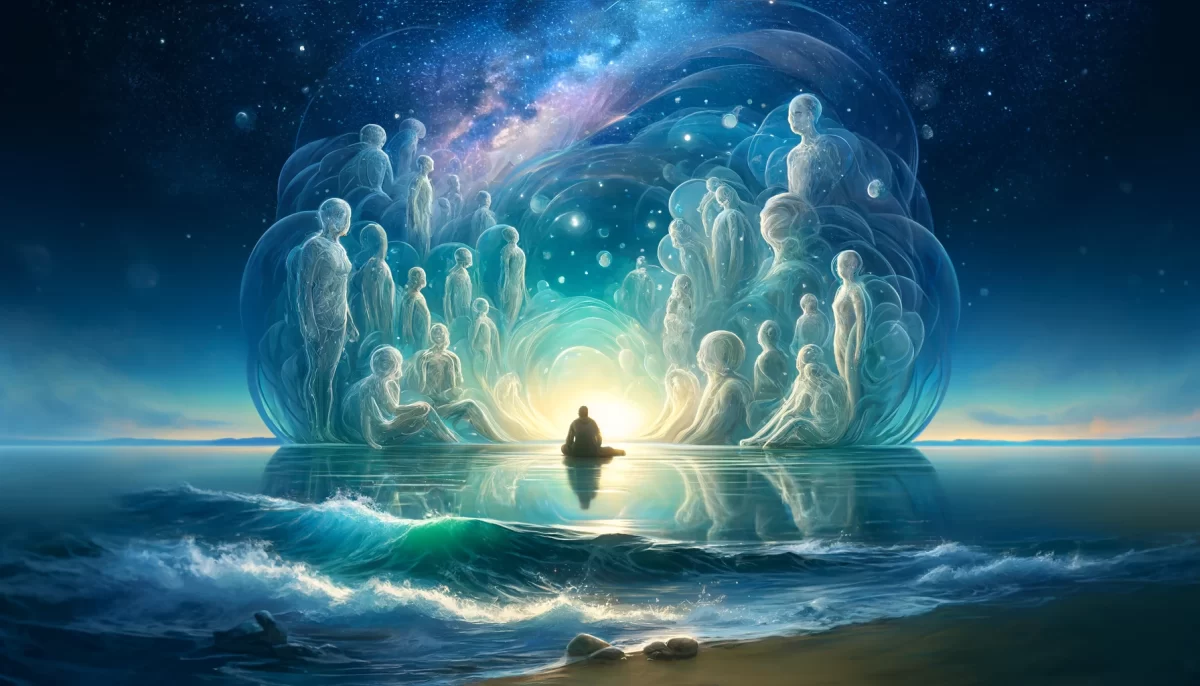
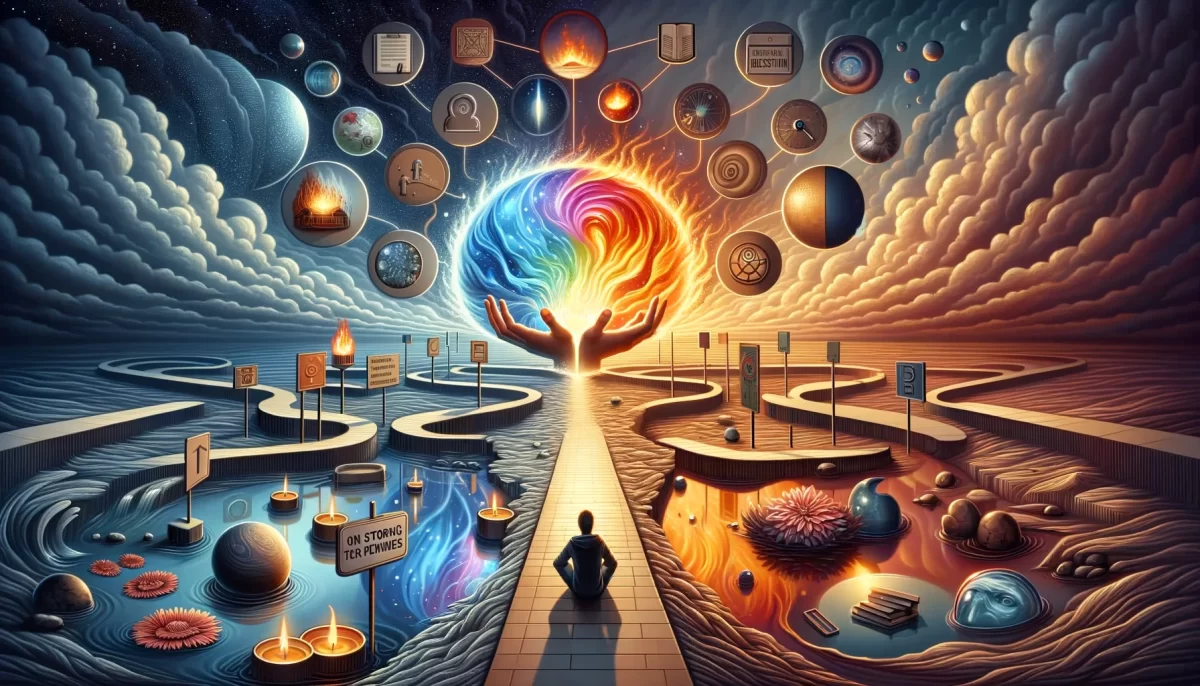
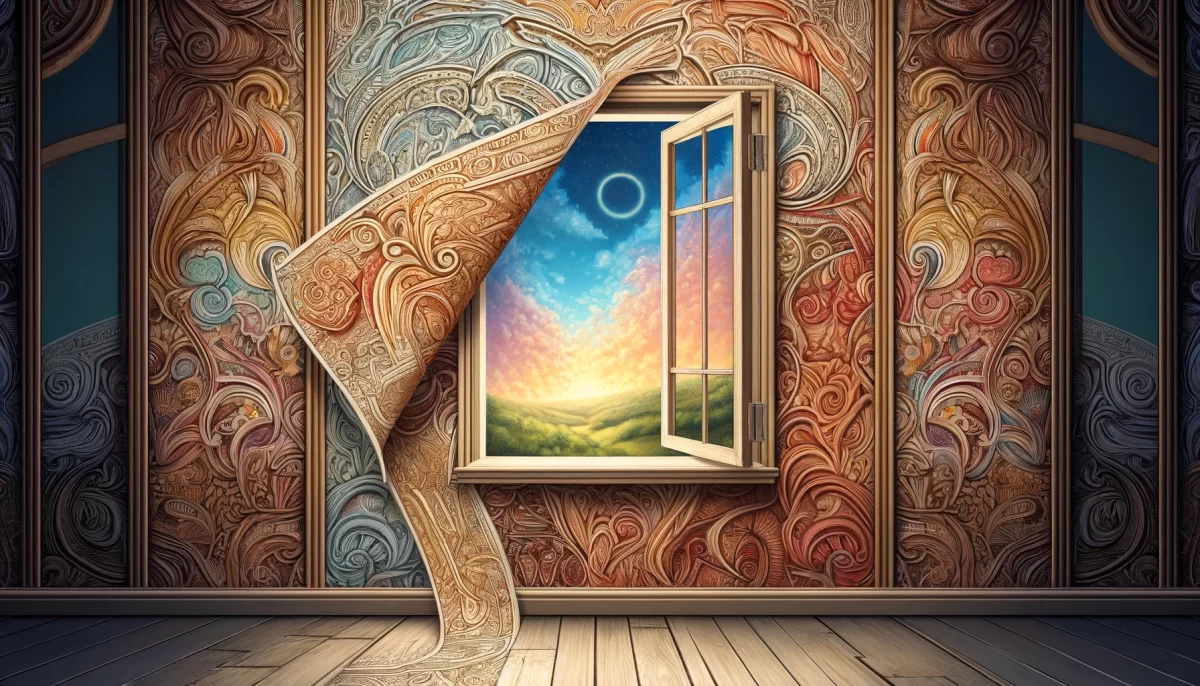

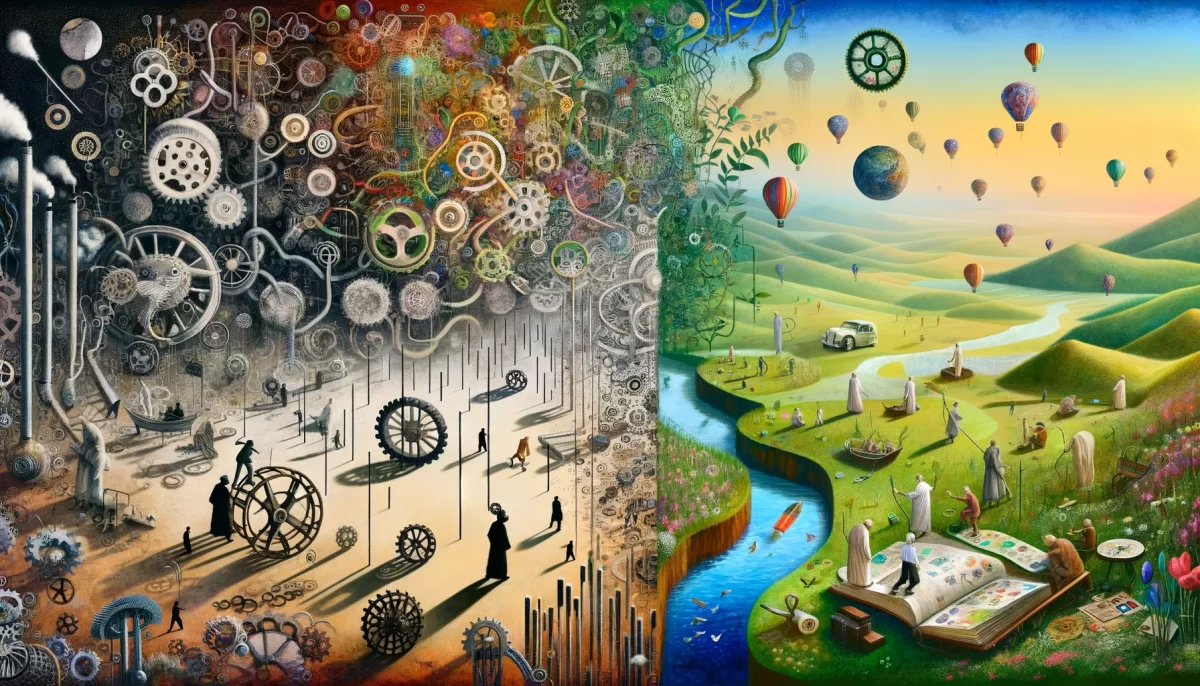



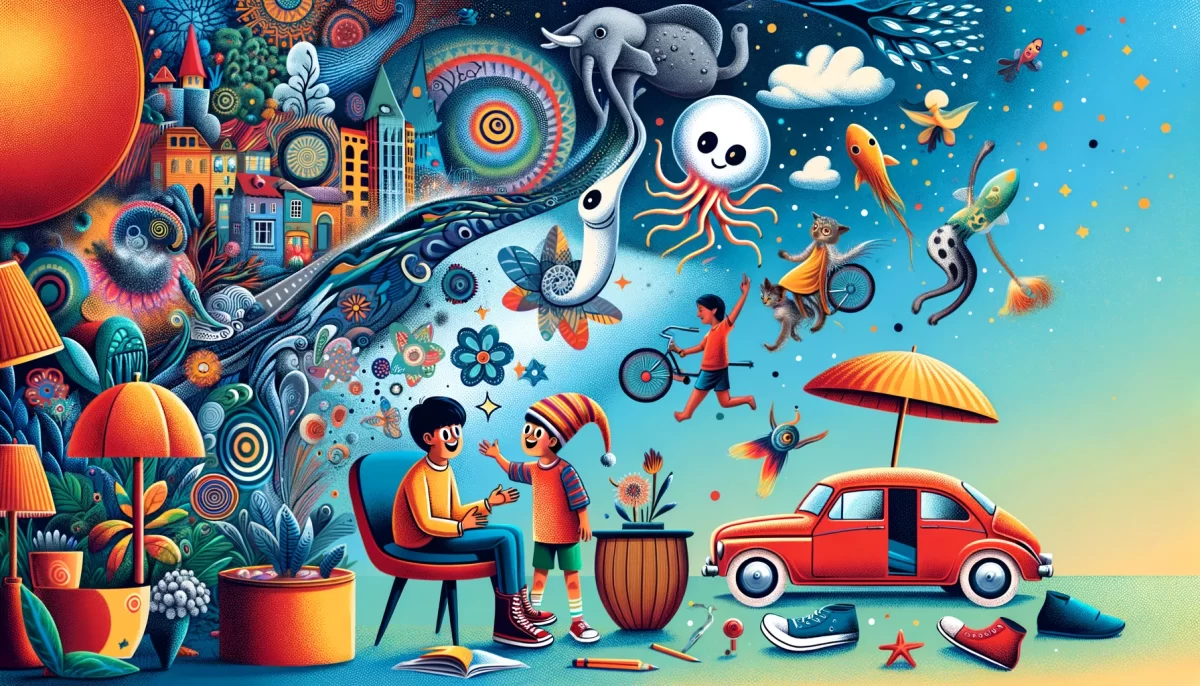
Leave a Reply